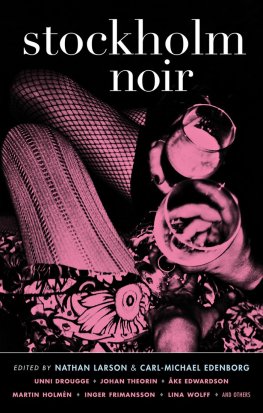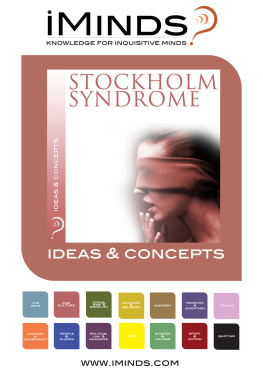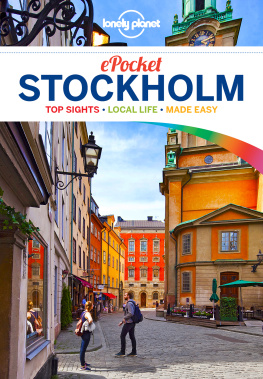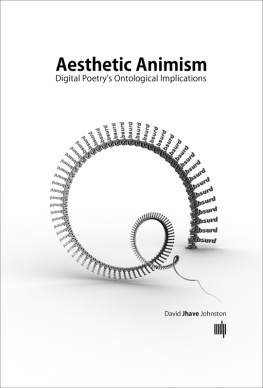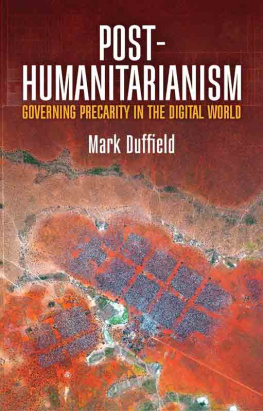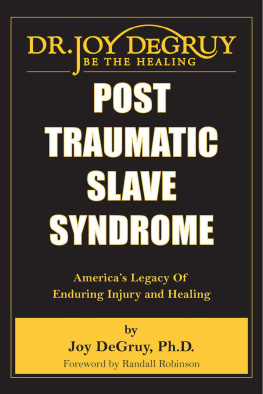Mark Jarzombek - Digital Stockholm Syndrome in the Post-Ontological Age
Here you can read online Mark Jarzombek - Digital Stockholm Syndrome in the Post-Ontological Age full text of the book (entire story) in english for free. Download pdf and epub, get meaning, cover and reviews about this ebook. year: 2016, publisher: University of Minnesota Press, genre: Politics. Description of the work, (preface) as well as reviews are available. Best literature library LitArk.com created for fans of good reading and offers a wide selection of genres:
Romance novel
Science fiction
Adventure
Detective
Science
History
Home and family
Prose
Art
Politics
Computer
Non-fiction
Religion
Business
Children
Humor
Choose a favorite category and find really read worthwhile books. Enjoy immersion in the world of imagination, feel the emotions of the characters or learn something new for yourself, make an fascinating discovery.

- Book:Digital Stockholm Syndrome in the Post-Ontological Age
- Author:
- Publisher:University of Minnesota Press
- Genre:
- Year:2016
- Rating:4 / 5
- Favourites:Add to favourites
- Your mark:
- 80
- 1
- 2
- 3
- 4
- 5
Digital Stockholm Syndrome in the Post-Ontological Age: summary, description and annotation
We offer to read an annotation, description, summary or preface (depends on what the author of the book "Digital Stockholm Syndrome in the Post-Ontological Age" wrote himself). If you haven't found the necessary information about the book — write in the comments, we will try to find it.
Digital Stockholm Syndrome in the Post-Ontological Age — read online for free the complete book (whole text) full work
Below is the text of the book, divided by pages. System saving the place of the last page read, allows you to conveniently read the book "Digital Stockholm Syndrome in the Post-Ontological Age" online for free, without having to search again every time where you left off. Put a bookmark, and you can go to the page where you finished reading at any time.
Font size:
Interval:
Bookmark:
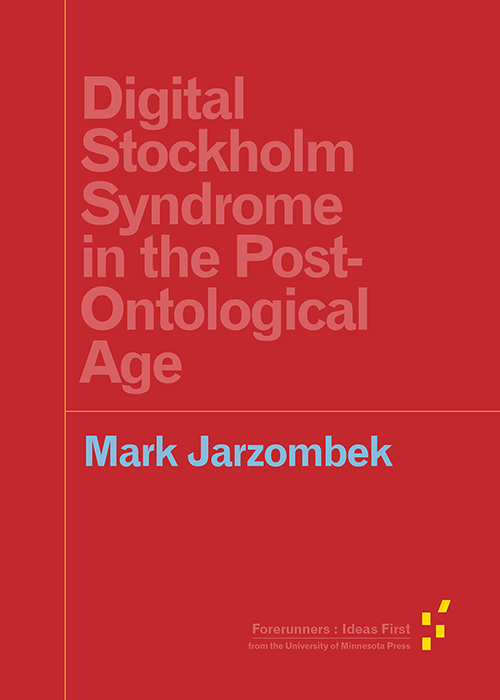
Forerunners: Ideas First from the University of Minnesota Press
Original e-works to spark new scholarship
F ORERUNNERS: IDEAS FIRST is a thought-in-process series of breakthrough digital works. Written between fresh ideas and finished books, Forerunners draws on scholarly work initiated in notable blogs, social media, conference plenaries, journal articles, and the synergy of academic exchange. This is gray literature publishing: where intense thinking, change, and speculation take place in scholarship.
Ian Bogost
The Geeks Chihuahua: Living with Apple
Andrew Culp
Dark Deleuze
Grant Farred
Martin Heidegger Saved My Life
John Hartigan
Aesops Anthropology: A Multispecies Approach
Mark Jarzombek
Digital Stockholm Syndrome in the Post-Ontological Age
Nicholas A. Knouf
How Noise Matters to Finance
Akira Mizuta Lippit
Cinema without Reflection: Jacques Derridas Echopoiesis and Narcissism Adrift
Reinhold Martin
Mediators: Aesthetics, Politics, and the City
Shannon Mattern
Deep Mapping the Media City
Jussi Parikka
The Anthrobscene
Steven Shaviro
No Speed Limit: Three Essays on Accelerationism
Sharon Sliwinski
Mandelas Dark Years: A Political Theory of Dreaming
Mark Jarzombek
University of Minnesota Press
Minneapolis
Copyright 2016 by Mark Jarzombek
All rights reserved. No part of this publication may be reproduced, stored in a retrieval system, or transmitted, in any form or by any means, electronic, mechanical, photocopying, recording, or otherwise, without the prior written permission of the publisher.
Published by the University of Minnesota Press
111 Third Avenue South, Suite 290
Minneapolis, MN 554012520
http://www.upress.umn.edu
The University of Minnesota is an equal-opportunity educator and employer.
I MMANUEL K ANT, writing at the end of the eighteenth century, defined the parameters of the modern sense of personhood by replacing the standard assumption of the superiority of the soul over the body with a more complex entanglement built around an innate sense of unity:
No one is immediately conscious of a particular place in his body, but only the one that he as a human being occupies with respect to the world around him.... Where I feel, there I am. I am just as immediately in my fingertips as in my head. It is myself whose heel hurts and whose heart beats with emotion. When my corn aches, I feel the painful impression not in a brain nerve but at the end of my toe.... My soul is wholly in my whole body and wholly in each of its parts.
So powerful was this claim that it remained a key element of nineteenth- and twentieth-century philosophy and was just as foundational to the dialectic of Hegel as it was to the psychohistoricism of Dilthey. It reached its most extreme figuration in Heideggers claim that the original act of building, bauen, derived from nothing lessand nothing more!than Ich bin. The claim also produced a vast symptomology to describe conditions that did not fit the moldschizophrenia, mood disorders, psychosis, paranoia, bipolarism, and so onall of which become scientifically verifiable proof in the negative of the more elusive existence of the modern notion of a stable and unified Self.
We are now in a situation where the discussion of ontology has to be updated. The world is designed from the macro to the micro/molecular level to fuse the algorithmic with the ontological. The result is a digitally monitored, pharma-corrected, ontic-ecology now common to many people across the globe, not just the wealthy, and not just those savvy in the ways of the computer. The modern duality of the stable and the unstable when talking about the Self is increasingly revealed as little more than an artifice: a convenience.
This book is, however, not about the media/digital world of gaming and gadgets; nor is it about the geopolitics of globalization. It asks a more personal question, and tries to do so without first judging who we are or what we have now become. It used to be that we were what we believed, or we were what we ate. Now, we are determined by what data experts call our data exhaustor, as I would like to call it, ontic exhaust. We participate in this exhaust making willingly and unwillingly, wittingly and unwittingly, purposefully and accidentally. The word exhaust is, of course, a misdirect. Unlike car exhaust that dissipates into the atmosphere, this exhaust is meticulously scrutinized, packaged, formatted, processed, sold, and resold to come back to us in the form of entertainment, social media, apps, health insurance, clickbait, data contracts, and the like.
Without this invisible ether of one and zeros, the world as we know it would, in fact, cease to function. It is the new oxygen, and everyoneand every thinghas to be dedicated to its production and maintenance. Unlike oxygen, which came into existence long before humans, this new substance is anthropocentric in that its production is a global/human enterprise. The individual, the corporation, the nation-state, and thousands of nameless hackers are increasingly shaping a destiny with an unknown proportion and an unknown termination date.
Though computers have been around for a while, this circulational condition has only emerged in the last five or so years, meaning that one has to completely rethink the philosophical and anthropological basis of our ontology and to do so without applying the lens of either victimhood or opportunity, the two modalities that are alien to this discussion. I do not, however, proclaim neutrality. Far from it. The questions are, What is this new ontology? What were the historical situations that produced it? And how do we adjust to the realities of our new Self? Only with these questions at least partially answered can we begin to develop a more substantial critique of the positional paradoxes that define the problem of Being.
G LOBAL WAS BORN in the age of aeronautics and Sputnik, with great circles wheeling around the planet bereft of topographical restrictions. Global back then implied something visceral about movement, maintained in the world of tourism, commerce, and overnight shipping. Increasingly, however, global has become a parasitic adjective: global industries, global science, global news, global education, global exchange, global warming, global imperialism, global war on terror, global markets, global jihadism, global integration, and so on. How many globals can a person comprehend? We live in a globalized world of global globalism.
All these globals are the noisy symptom of an otherwise relatively quiet transformation that has taken place. For there is another global in all of this for which the word global does not, however, appear. It is the I made global not by how much the I travels or where its clothes are made, and not necessarily by the fact that the I owns an iPhone or iPad, but by a universe of anonymously implemented firmwares, softwares, trackwares, ransomwares, trialwares, malwares, piratewares, and sharewares. The intermediaries are the satellites hovering above the planet. They are what make us globalwhat make me global.
Is there some way to reflect on this positioning/depositioning as a question of Being?
At first, it might seem that we should focus on someone who is savvy about emerging technologies, digital media, and a so-called culture of connectivity. Perhaps this is a person who travels a lot, a businessperson who understands to some degree the necessity, if not the logic, of capital, reads from his or her tablet, and worries about the next Global Crisis. A Hilton Cosmopolitan. Liberals would hope that this person is sensitive to the economic exploitation of capital. Conservatives would hope that this person enjoys making money. It doesnt matter. There is more to it than that. We see in the last years a new ontology, one that is not the classic Being-in-the-World (Plato and Buddha), not the modernist Being-in-the-World (Hegel, Nietzsche, and Heidegger), not the techno-liberated-performative cyborg of the 1990s, and not just a member of Facebook Universe. It is a new creature altogethera new Being.
Font size:
Interval:
Bookmark:
Similar books «Digital Stockholm Syndrome in the Post-Ontological Age»
Look at similar books to Digital Stockholm Syndrome in the Post-Ontological Age. We have selected literature similar in name and meaning in the hope of providing readers with more options to find new, interesting, not yet read works.
Discussion, reviews of the book Digital Stockholm Syndrome in the Post-Ontological Age and just readers' own opinions. Leave your comments, write what you think about the work, its meaning or the main characters. Specify what exactly you liked and what you didn't like, and why you think so.

